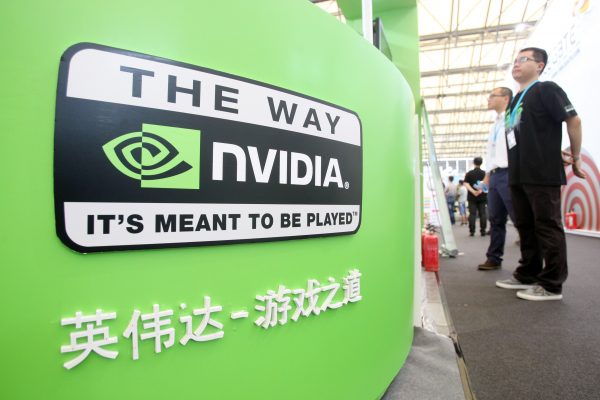The market was shaken in September 2022 by restrictions on the sale of graphic processing units by Nvidia and Advanced Micro Devices to China. Companies had already begun to pull their staff out of China in response to new controls prohibiting US citizens from supporting the development and production of chips in Chinese firms.
The new license requirements for items destined to a chip fabrication facility in China are blocked subject to a number of thresholds. The new measures are meant to halt Chinese chip companies at their current levels of progression. Ten days after the BIS announced the reinforced export controls, the US International Trade Commission announced a Section 337 investigation into semiconductors in response to two cases filed by the non-practicing entity Daedalus Prime LLC, which holds intellectual property of US chipmaker Intel against Qualcomm, Taiwan Semiconductor Manufacturing Company and Samsung.
The Taiwan Semiconductor Manufacturing Company and South Korea’s Samsung and SK Hynix have received one-year waivers from the BIS regulations, but the doors may soon close on upgrading their businesses in China. SK Hynix is reluctantly contemplating selling or relocating its equipment in China to South Korea.
The BIS move comes at a time when the US Department of Commerce, in concert with the US Trade Representative, is soliciting Asian counterparts to join the Indo-Pacific Economic Framework. Yet US President Joe Biden’s ‘Made in America’ initiative is concurrently aiming to increase the domestic production of semiconductors via the CHIPS and Science Act and the CHIPS for America Fund, and to re-shore other high-tech industries involving clean energy via the Inflation Reduction Act. This is all in the pursuit of US supremacy in emerging industries.
The BIS export controls have been met with disillusionment from allies, particularly as the measures are being imposed on them without clear incentives, while the US Department of Commerce is still approving most US tech exports to China. Seoul has frowned upon US Secretary of Commerce Gina Raimondo’s diversion of a Taiwanese silicon wafer firm GlobalWafers’ investment bound for South Korea to Texas.
For the United States, the restrictions are not a question of feasibility but are imperative to limiting the transfer of dual-use technology. But for allies, the reality of ‘friend-shoring’ — manufacturing and sourcing components and raw materials within a group of countries that have shared values — raises questions as to whether they can defend their key industries.
US export controls on dual-use technology are not at all new. In 1949, the United States launched the Coordinating Committee for Multilateral Export Controls against the Eastern Bloc in the aftermath of World War II.
This committee was dissolved upon the dissolution of the Soviet Union in 1991, but the United States launched the Wassenaar System in 1996 to succeed it. During the US–Japan trade war in the 1980s, the United States did not hesitate to impose measures against its ally. The Committee on Foreign Investment in the United States, originally established in 1975 to study foreign investment, was empowered to reject deals from 1988 by the Exon-Florio Amendment. This revision occurred amid fears of Japanese investment after Japan’s Fujitsu tried to acquire Fairchild Semiconductor.
The United States fortified its unilateral export controls in the aftermath of the 9/11 terror attacks in 2001. These export controls were reinforced during the US–China trade war from 2018 under former president Donald Trump. Biden’s tech war now presents an upgraded form of these export controls as uncertainty looms over the US economy.
As Chinese President Xi Jinping enters his third term, the stakes for the Taiwan Semiconductor Manufacturing Company have been raised by the likelihood of escalation in the Taiwan Strait. The United States has been manoeuvring to compel its East Asian allies — Taiwan, South Korea and Japan — to join the ‘Chip 4 Alliance’, for which the preliminary meeting was held on 29 September 2022.
While the partnership aims to build a more robust semiconductor supply chain, the United States has not specified what the terms would be. Taiwan and Japan have expressed a clear interest in joining the group, while South Korea continues to contemplate its membership despite attending the meeting.
While East Asian economies in the chip supply chain have each announced plans to uplift their domestic chip industries with subsidies, China is also raising the calibre of its chip production to defy US pressure.
Governments and industry players alike should brace for further fluctuations in the chip industry based on geopolitical risk, as export controls are now the baseline scenario for international trade. The new export curbs are the prelude to a heightened tech protectionism that may bring about further chip supply disruptions.
The BIS measures could have unintended consequences — including record losses for chip firms in the United States, South Korea and Taiwan, and the stalling of development of advanced chips by Chinese firms. But what is certain is that China under President Xi will push toward indigenous chip development and that the US measures alone do not guarantee the demise of the Chinese semiconductor industry.
The mismatch of government and business interests raises concerns that backdoor channels of rerouting may be activated by certain semiconductor companies for survival, as China is the key market for chips. Without clear incentives for allies, the US goal of ‘friend-shoring’ cannot be achieved.
June Park is a political economist and an inaugural International Strategy Forum-Asia Fellow at Schmidt Futures. She served as a 2021–22 Fung Global Fellow at the Princeton Institute for International and Regional Studies at Princeton University.

